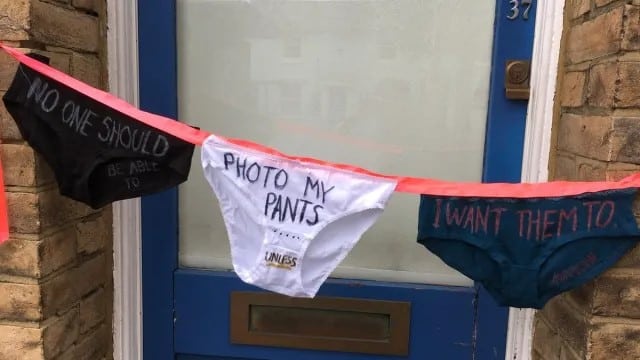At least 14 ‘upskirting’ crimes were recorded in Nottinghamshire in the past twenty four months, new data reveals
Upskirting is a form of voyeurism where someone uses a camera or phone to take photos or videos underneath a person’s clothes without their permission. It was outlawed illegal in England and Wales in 2019.
The End Violence Against Women Coalition said a focus on public awareness campaigns and school education on healthy sex and relationships is needed to tackle the crime.

Fourteen upskirting offences were recorded in the last two years by Nottinghamshire Police – eight in 2022 and six in 2021.
However, Mojatu Magazine has established that all the victims were female.
Andrea Simon, End Violence against Women Coalition director, said: “It is vital we take this behaviour seriously, so those who do it know they will face consequences for it, but also to prevent the potential escalation of sexual offending.
“We need to think about upskirting as connected to all the other forms of harassment and abuse that women experience, it is a harmful violation in its own right and also connected to the fears women have about the risk of other forms of sexual violence, and the calculations we are always making about our safety.”

Across England and Wales, 721 upskirting crimes were recorded in 2021 and 2022 across 38 forces – 96 per cent of victims with a recorded gender were female.
For the 37 forces that provided details of how the incidents were followed up, 86, 12 per cent, of these crimes resulted in a charge or summons.
The data for Nottinghamshire shows at least one crime led to a charge in both 2021 and in 2022, but the exact figures are supressed.
Separate Ministry of Justice figures show there have been 356 prosecutions involving upskirting since the law was changed.

Out of the 356 prosecutions, 262 led to convictions.
A Government spokesman said: “We created a specific offence to tackle upskirting because it is an abhorrent and degrading crime which no one, especially children, should have to experience.
“We are also investing record funding into policing and up to £7.4 million in projects to tackle the root causes of violence against women and girls.”
“It is vital we take this behaviour seriously…”
Andrea Simon
End Violence against Women Coalition director



